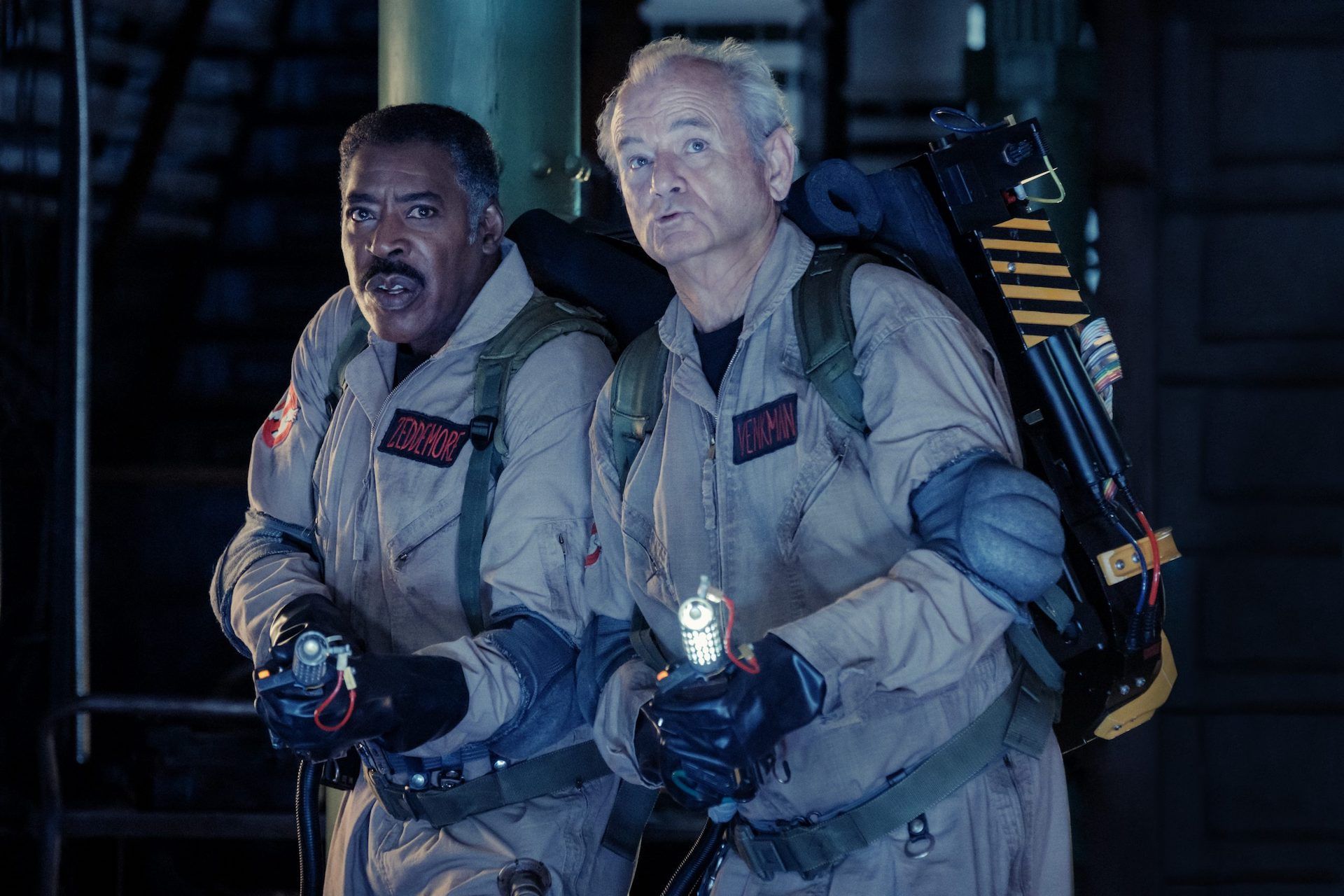
Of Gods and Ghostbusters
The latest sequel to the 1980s classic probes our intergenerational obsession with nostalgia and the spiritual gulf it is responsible for.
The news during Holy Week was dire. According to Gallup, only 30% of American adults attend church regularly, a marked decline of more than 12% over the last twenty years. Curiously, amid this narrative of Americans’ alleged demand for increased secularity, Hollywood’s output has taken a decisively spiritual turn. From Sound of Freedom and the tepid new Bob Marley biopic to the resurgence of religious horror in The Exorcist: Believer, The First Omen, and Immaculate, movie culture has noted our spiritual lack. Yet, no film has been able to diagnose it with as much depth and savvy as the latest battle between the Ghostbusters and an ancient evil.
Since the original became an unlikely box office hit in 1984, Ghostbusters has dealt head-on with the role the otherworldly plays in the increasingly secularized American metropolis. Released during the ramping up of the Cold War’s last act, it is perhaps the most enduring franchise to come from Hollywood’s brief turn toward academics and inventors as blockbuster heroes, a time in which Indiana Jones, Doc Brown, and the teenagers of Real Genius and Weird Science served as a cinematic rebuttal to Russia’s scientific and military prowess.
Ghostbusters has long been the only Hollywood property that willingly avoids the schism between the scientific and spiritual. In a world of ghouls ranging from the oozy to the apocalyptic, the real villains of the franchise are institutions–whether the dogmatic Academy that cast out the heroes for their fringe theories or the EPA led by middle manager Walter Peck (William Atherton) who put the Busters in jail in the original hours before armageddon befell New York City.
The most welcome surprise of Ghostbusters: Frozen Empire is the return of Atherton to the role that forged his career as the preening beta stooge in everything from Die Hard to Real Genius. Despite the public embarrassment that befell him in 1984, Peck has now become the mayor of NYC, the Dream Factory’s illustration of every lifelong bureaucrat’s greatest fantasy. With the heirs to Harold Ramis’s Egon Spengler taking the reins and reopening the firehouse after the events of 2021’s spectacular Ghostbusters: Afterlife, the newly minted mayor finally has the power and the chance to unleash hell on his arch-nemeses.
What sets this recent Ghostbusters reboot apart after 2016’s ill-advised all-female version is its sense of sadness and loss–a tone necessary not only because of Ramis’s and original director Ivan Reitman’s untimely deaths but also because the original’s bawdy humor and edge no longer go down quite as easy (imagine a contemporary summer blockbuster that takes down the EPA and NYC authorities with the gusto of the original and its 1989 sequel). This underlying melancholy also makes Ghostbusters the rare franchise able to engage in nostalgia while retaining the distance to be critical of the current wave of retreads and prequels of which it is begrudgingly a part.
In its multigenerational appeal, Ghostbusters: Frozen Empire tackles how its characters navigate life and belief in a secular society they know is merely a front to allow the Pecks of the world to maintain their authority. While Ray Stantz (Dan Aykroyd), Peter Venkman (Bill Murray), and, the Busters new leader and benefactor, Winston Zeddemore (Ernie Hudson), apply their Boomer work ethic and unrelenting passion for the work to stave off being put out to pasture, Phoebe Spengler (Mckenna Grace) and her Gen Z spunk can’t mask her need to stay on the team largely because weaponized science and power brokering leaves her life with little meaning. It’s why she strikes up a friendship with ghost teen Melody (Emily Alyn Lind) who longs to join the family she accidentally killed in a fire a century ago in the afterlife and will do so by any means necessary.
Only new Busters Paul Rudd and Patton Oswalt, who are dealing with their lingering Gex X angst, and professional millennial bottomfeeder Nadeem (Kumail Nanjiani), who navigates a long-suppressed supernatural power, must find their greater purpose defending the firehouse against a ghostly warlord after being reared on the diet of pop culture nostalgia and cynicism that begat our current cultural moment. Ghostbusters: Frozen Empire ultimately becomes a film about longing. For reunited families, for the purpose of life, and for all the meaning Walter Peck and his ilk have spent the last half-century stripping away.
Ghostbusters: Frozen Empire is now playing in theaters.
